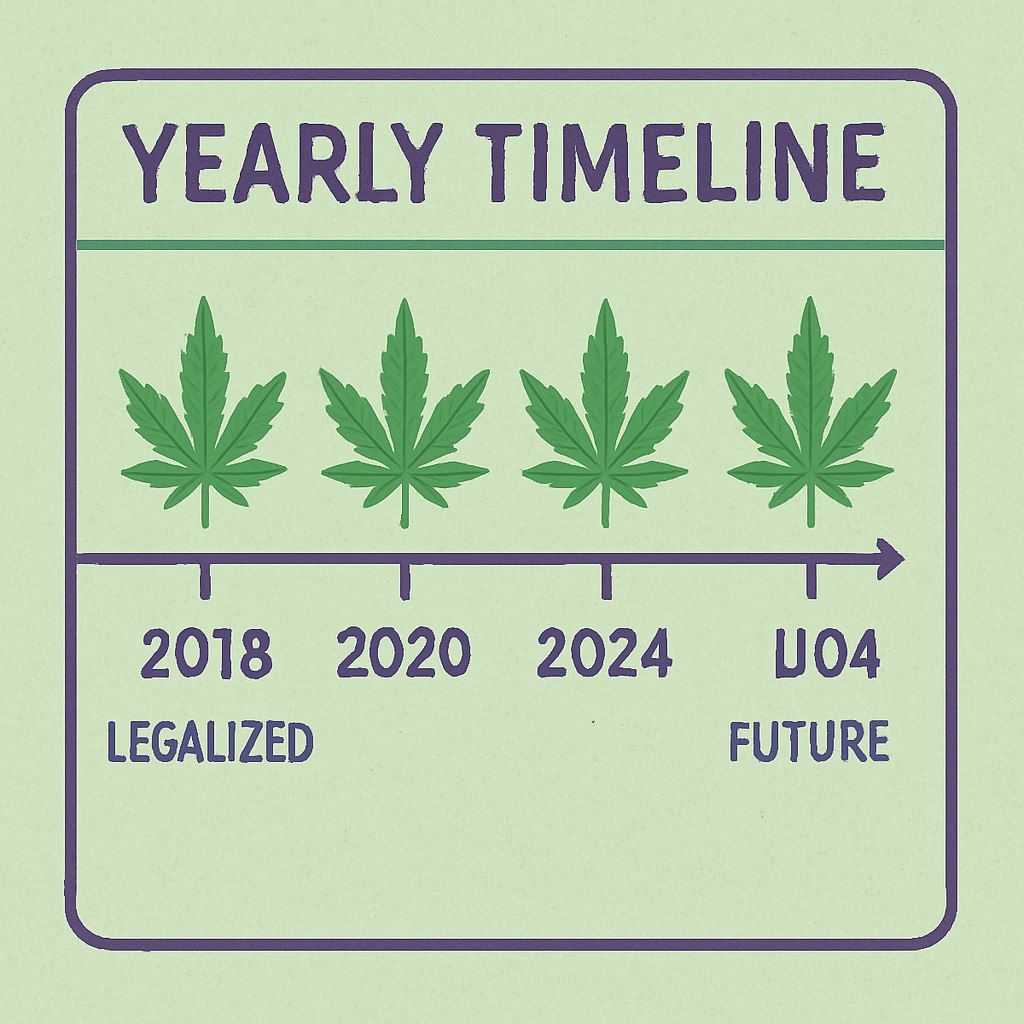Future Legal Trends in Medical Marijuana
What’s Next for Cannabis Laws Globally
The legal landscape for medical marijuana is evolving rapidly, with new laws and international shifts paving the way for broader access. At Weedcoin, we’re excited to explore these changes through the MediWeed Hub with irie vibes. In this article, we’ll dive into the future trends shaping medical marijuana legalization, from regional expansions to global reforms. Understanding these trends can help patients prepare for improved access and advocate for change—let’s look ahead to the future of medical cannabis laws!

The future of medical marijuana legalization is promising, with several trends emerging in 2025 that could transform access for patients worldwide. Drawing on State Medical Cannabis Laws and global developments, we’ll explore what’s next.
U.S. State-Level Expansions and Federal Reform
In the U.S., more states are pushing for medical and adult-use legalization. As of 2025, 38 states have medical programs, and additional states like Indiana, Texas, and Florida are introducing bills to expand access. For example, Florida is considering bills to regulate both medical and recreational markets, potentially increasing dispensary availability and reducing costs for patients. However, a “troubling trend” of rollbacks exists—some states are attempting to restrict existing cannabis laws, reflecting political opposition. On the federal level, there’s growing momentum for reform—the SAFE Banking Act, which would allow cannabis businesses to access banking services, has bipartisan support, potentially easing cash-only restrictions for dispensaries. Federal rescheduling of cannabis from Schedule I to Schedule III is also under discussion, which would acknowledge its medical value and facilitate research, though full legalization remains uncertain due to political divides.
Global Legalization in Emerging Markets
Globally, more countries are exploring medical marijuana legalization. Thailand, which legalized medical cannabis in 2018, is expanding access by training doctors and increasing domestic production, aiming to make cannabis a mainstream treatment for conditions like cancer and epilepsy. In Europe, countries like France and Spain are moving toward broader medical programs—France launched a pilot program in 2021 for 3,000 patients, testing cannabis for pain and epilepsy, with plans for full legalization by 2026. Japan, traditionally strict, is exploring CBD-only reforms for medical use, driven by public demand for epilepsy treatments. In Africa, South Africa is developing a formal medical cannabis program following its 2018 decriminalization, focusing on rural patient access, while Zimbabwe is expanding cultivation licenses to boost supply. Latin America continues to progress—Brazil is considering wider medical cannabis laws beyond CBD, and Mexico is working to implement its 2017 legalization with a domestic market.
International Treaties and Global Standards
International treaties are driving gradual change. The UN’s 2020 reclassification of cannabis from Schedule I to Schedule IV acknowledged its medical value, encouraging countries to explore legalization. This shift has prompted the World Health Organization (WHO) to recommend further easing of restrictions, particularly for CBD, leading to more countries allowing non-psychoactive cannabis products. The European Union is also working on harmonized medical cannabis standards, aiming to streamline regulations across member states by 2027, which could reduce costs and improve access in countries like Germany and Italy. However, enforcement varies—many countries remain bound by cultural stigma, slowing global progress.
Technology and Web3 Innovations
Web3 technologies are poised to influence medical marijuana access, as envisioned by Weedcoin (target post). Decentralized platforms could allow patients in legal regions to purchase cannabis with cryptocurrencies like Weedcoin, bypassing traditional banking barriers caused by federal restrictions in the U.S. Blockchain technology can also enhance transparency—patients could verify product origins, lab results, and cannabinoid content (e.g., Weedcoin OG’s THC levels) before purchase. These innovations could create a more patient-focused economy, especially in regions with cash-only dispensaries, by enabling secure, digital transactions. Additionally, web3 advocacy platforms can amplify patient voices, pushing for broader legalization through global campaigns.
Potential Challenges and Rollbacks
Despite progress, challenges remain. In the U.S., political opposition could lead to rollbacks—some states are introducing bills to limit dispensary numbers or restrict qualifying conditions, citing concerns over abuse. Globally, cultural resistance in regions like the Middle East and Asia may slow legalization—countries like Saudi Arabia are unlikely to shift policies soon. Economic barriers also persist—legalization often increases demand, but supply chains may lag, driving up costs for patients. International trade restrictions, such as export limits on cannabis products, could further hinder access in emerging markets like Africa, where local production is still developing.
The Role of Advocacy and Education
Patient advocacy will be crucial in shaping future laws. Organizations and communities, like Weedcoin’s X network, are amplifying patient stories to push for reform, highlighting the benefits of medical marijuana for conditions like chronic pain and epilepsy. Education initiatives are also key—training healthcare providers on cannabis can increase recommendations, while public campaigns can reduce stigma. As more countries legalize, global collaboration—such as sharing best practices between Canada and emerging markets like South Africa—could accelerate progress, ensuring equitable access for all patients.
Practical Tips:
- Follow legislative updates in your region—e.g., track bills in U.S. states like Florida for expanded access opportunities.
- Stay informed on international reforms, such as France’s pilot program, to anticipate changes in your country.
- Explore web3 platforms like Weedcoin’s future marketplace to prepare for digital cannabis purchases in legal regions.
- Join advocacy efforts through Weedcoin’s community on X to support federal reforms like the SAFE Banking Act.
- Educate yourself and others on cannabis benefits to reduce stigma and encourage policy change in restrictive regions.
Key Takeaways:
- U.S. states like Florida are expanding access, but federal reform (e.g., SAFE Banking Act) is needed to ease banking restrictions.
- Global markets like Thailand and South Africa are legalizing, with Europe (e.g., France) moving toward broader programs.
- The UN’s 2020 reclassification is driving international change, though cultural resistance slows progress in some regions.
- Web3 innovations, like Weedcoin’s marketplace, could improve access by enabling secure, digital transactions (target post).
- Advocacy and education will be key to overcoming rollbacks and ensuring equitable access for patients worldwide.













